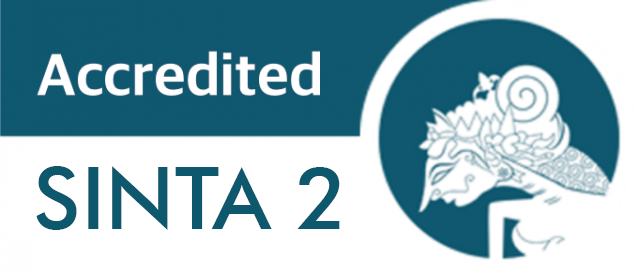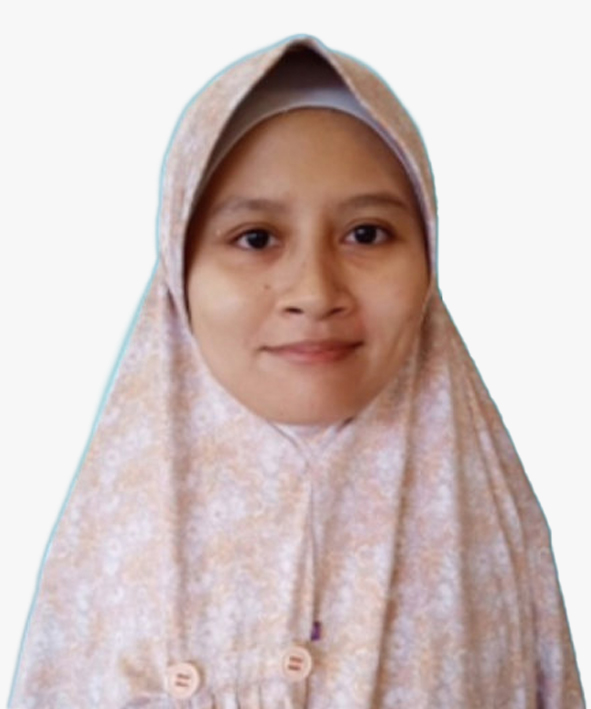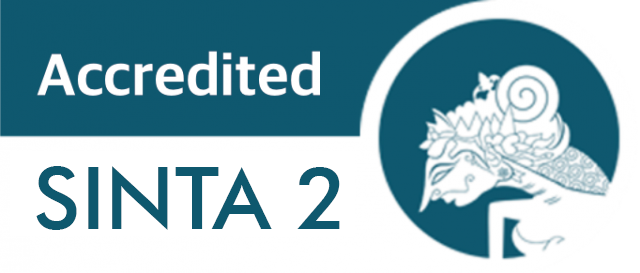Effect of Music Therapy on The Improvement of Clinical Symptoms and Cognitive Functions of Schizophrenia Patients Receiving Risperidone Therapy
Downloads
Background: Music therapy as a non-pharmacotherapy management has not been widely used. Data about effectiveness, ideal number of sessions and types/methods of music therapy have not been widely studied in Indonesia. Therefore, this study was designed to answer these problems so that music therapy can be applied appropriately. Objective : To determine the effect of music therapy on the improvement of clinical symptoms and cognitive function of schizophrenic patients that are receiving risperidone therapy. Methods : This study was an experimental study with comparative analysis. Sampling with consecutive sampling on the population of patients who were hospitalized in the Regional Special Hospital of South Sulawesi Province. The treatment group received risperidone therapy and music therapy (active and receptive) 6-8 sessions with a duration of 45 minutes/session, the control group only received risperidone 2-4 mg/day. The instruments used were the PANSS and the MoCA - Indonesian version, examined in the second and fourth weeks after music therapy. Results: There was a significant difference between the treatment group compared to the control group in decreasing the PANSS score for negative symptoms (p=0.000), general psychopathology (4th week p=0.011) and cognitive function (4th week p=0.000) especially on visuospatial components (p=0.001), attention (p=0.009) and abstraction (p=0.011). There was no significant difference between the treatment group compared to the control group in decreasing the PANSS score for positive symptoms (p=0.0.102) Conclusion: Music therapy can be a non-pharmacological therapy of choice to support the improvement of negative symptoms, cognitive function and general psychopathology in the stabilization phase of schizophrenic patients receiving risperidone.
Chien, WT, Leung, SF, Yeung, FK, & Wong, WK (2013).Current approaches to treatments for schizophrenia spectrum disorders, part II: psychosocial interventions and patient-focused perspectives in psychiatric care. Neuropsychiatric Disease and Treatment, 1463.doi:10.2147/ndt.s49263
Patel, KR, Cherian, J., Gohil, K., & Atkinson, D. (2014). Schizophrenia: overview and treatment options. P&T: a peer-reviewed journal for formulary management, 39 (9), 638-645
Ministry of Health (Kemenkes), 2019, Available from : https://databoks.katadata.co.id/datapublish/2019/10/08/ distribution-prevalence-schizophrenia-psychosis-in-indonesia
World Health Organization. (2017c).Mental health ATLAS 2017 state profile. Geneva: World Health Organization. https://www.who.int/mental_health/evidence/atlas/profiles2017/IDN.pdf?ua=1
Stępnicki, P., Kondej, M., & Kaczor, AA (2018). Current Concepts and Treatments of Schizophrenia.Molecules (Basel, Switzerland),23(8), 2087. https://doi.org/10.3390/molecules23082087
Azmanova, M., Pitto-Barry, A., & Barry, NPE (2018).Schizophrenia: synthetic strategies and recent advances in drug design. MedChemComm, 9(5), 759–782.doi:10.1039/c7md00448f
Kusumawardhani, AAA, Dharmono, S., Diatri, H. (2011). Schizophrenia Consensus. Indonesian Mental Medicine Specialist Association (PDSKJI)
Kaplan HI, Saddock BJ, Greb JA. 2015. Synopsis of Psychiatry: Behavioral Sciences / Clinical Psychiatry. 11th ed. USA: Lippincott Williams & Wilkins.
Gold, C., Solli, HP, Krüger, V., & Lie, SA (2009). Dose-response relationship in music therapy for people with serious mental disorders: systematic review and meta-analysis. Clinical Psychology Review, 29(3), 193e207. http://dx.doi.org/10.1016/j.cpr.2009.01.001
Kwon, M., Gang, M., & Oh, K. (2013).Effect of the Group Music Therapy on Brain Wave, Behavior, and Cognitive Function among Patients with Chronic Schizophrenia. Asian Nursing Research, 7(4), 168–174.doi:10.1016/j.anr.2013.09.005
Blood, AJ, & Zatorre, RJ (2001). Intensely pleasurable responses to music correlated with activity in brain regions implicated in reward and emotion. Proceedings of the National Academy of Science, 98(20), 11818e11823. http://dx.doi.org/10.1073/pnas.191355898
Boso, M., Politi, P., Barale, F., & Emanuele, E. (2006). Neurophysiology and neurobiology of the musical experience. Functional Neurology, 21(4), 187e191
Urich, G., Houtmans, T., & Gold, C. (2007). The additional therapeutic effect of group music therapy for schizophrenic patients: a randomized study. Acta Psychiatrica Scandinavica, 116(5), 362e370. http://dx.doi.org/10.1111/j.1600-0447.2007.01073.x
Geretsegger, M., Mössler, KA, Bieleninik, ., Chen, X.-J., Heldal, TO, & Gold, C. (2017).Music therapy for people with schizophrenia and schizophrenia-like disorders. Cochrane Database of Systematic Reviews.doi:10.1002/14651858.cd004025.pub4.
James, S., Lewerissa, SS, Titaley, C.2019. The Effect of Classical Music Therapy on Changes in Symptoms and Functions in Schizophrenic Inpatients at Special Hospitals in Maluku Province. University of Pattimura: Pattimura Medical Review
Stahl SM, Psychosis and Schizophrenia, In: Stahl's Essential of Psychopharmacology, 4th Edition, New York: Cambridge University; 2013
James, CE, Altenmüller, E., Kliegel, M., Krüger, THC, Van De Ville, D., Worschech, F., ... Marie, D. (2020).Train the brain with music (TBM): brain plasticity and cognitive benefits induced by musical training in elderly people in Germany and Switzerland, a study protocol for an RCT comparing musical instrumental practice to sensitization to music. BMC Geriatrics, 20(1).doi:10.1186/s12877-020-01761-y
Stegemoller, EL (2014).Exploring a Neuroplasticity Model of Music Therapy. Journal of Music Therapy, 51(3), 211–227.doi:10.1093/jmt/thu023
Schellenberg, EG (2005).Music and Cognitive Abilities. Current Directions in Psychological Science, 14(6), 317–320.doi:10.1111/j.0963-7214.2005.00389.x
Gold, C., Solli, HP, Krüger, V., & Lie, SA (2009).Dose–response relationship in music therapy for people with serious mental disorders: Systematic review and meta-analysis. Clinical Psychology Review, 29(3), 193–207.doi:10.1016/j.cpr.2009.01.001
Zanelli, J., Mollon, J., Sandin, S., Morgan, C., Dazzan, P., Pilecka, I., ... Reichenberg, A. (2019).Cognitive Change in Schizophrenia and Other Psychoses in the Decade Following the First Episode. American Journal of Psychiatry, appi.ajp.2019.1.doi:10.1176/appi.ajp.2019.18091088
Bowie, CR, & Harvey, PD (2006). Cognitive deficits and functional outcomes in schizophrenia.Neuropsychiatric disease and treatment,2(4), 531–536. https://doi.org/10.2147/nedt.2006.2.4.531
Copyright (c) 2023 Saidah Syamsuddin, Mikael Sri Pabilang

This work is licensed under a Creative Commons Attribution-ShareAlike 4.0 International License.
1. Copyright of this journal is possession of the Author, by the knowledge of the Editorial Board and Journal Manager, while the moral right of the publication belongs to the author.
2. The journal allows the author(s) to retain publishing rights without restrictions.
3. The articles are published under a Creative Commons Attribution Share-Alike (CC BY-SA) license. Many research funding bodies prefer the CC BY-SA license because it allows for maximum dissemination and re-use of open access materials. Users are free to share (copy, distribute, and transmit) and remix (adapt) the contribution under this license, including for commercial purposes, as long as they attribute the contribution in the manner specified by the author or licensor.




























